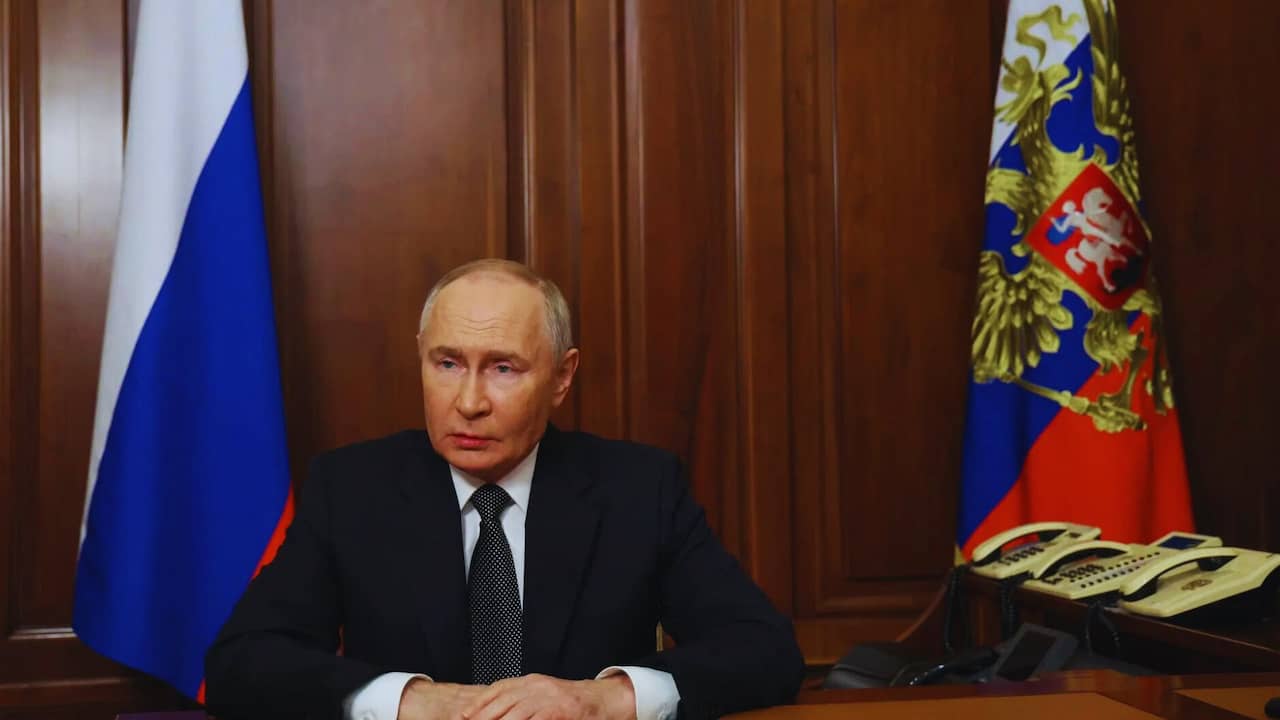Putin’s Nuclear Saber-Rattling Splits Russian Society: Fear and Fervor Collide
In a dramatic escalation of military tensions, President Vladimir V. Putin’s latest missile demonstration has triggered a complex mixture of reactions within Russia, from zealous patriotic support to quiet anxiety about nuclear escalation.
The Russian leader’s decision to launch the nuclear-capable Oreshnik missile at Ukraine marks a significant shift in the conflict’s dynamics, drawing both international condemnation and domestic acclaim.
Breaking developments reveal that Putin intends to continue testing and mass-producing this advanced weapons system, which he claims is impossible to intercept with current defense technologies. At a televised defense ministry meeting, Putin declared, “We will continue testing the latest system,” announcing plans to develop “several similar systems.”
The missile strike on Dnipro has become a watershed moment in the ongoing conflict, coming directly after the White House’s authorization for Ukraine to use long-range missiles against Russian targets. This tit-for-tat escalation has raised serious concerns about the conflict’s potential to expand beyond Ukraine’s borders.
Inside Russia, the public response has been starkly divided. Denis Volkov, director of the independent Levada Center, notes a significant shift in attitudes: “Within the elites, the consensus is shifting toward talking about it much more openly.”
Recent polling suggests a troubling trend – while nearly half of Russians still consider nuclear weapons use “unacceptable,” support for such measures has risen to 34 percent.
The state-controlled media machine has gone into overdrive, celebrating the missile launch with elaborate graphics and triumphant commentary. On Rossiya-1, prominent host Olga V. Skabeyeva boasted about the missile’s range, noting it could reach “all European capitals… Even London!” The coverage has carefully framed the launch as a defensive response to Western aggression rather than an escalation.
However, beneath the surface of state propaganda, many Russians are grappling with increased anxiety. “Sometimes it feels like I no longer care. You get so numb, but the ongoing background noise is one thing, and using an ICBM for the first time is something else,” shared Olga, a Moscow university professor who requested anonymity for safety reasons.
The economic impact has been immediate, with the ruble dropping to its lowest point against the dollar since March 2022. This financial tremor suggests that despite the confident rhetoric, markets remain sensitive to signs of escalating military tension.
In response to Russia’s actions, Ukrainian President Volodymyr Zelensky has condemned the attack and announced urgent consultations with allies about developing new air defense systems. NATO has scheduled emergency talks for next week, highlighting the international community’s growing concern about this new conflict phase.
Russian social media reactions have ranged from dark humor to outright celebration. Pro-war channels have shared memes depicting Putin as an action hero, while others have expressed more sobering concerns about the country’s trajectory. As one Rostov-on-Don resident noted on Telegram, “Russia has been set 25 years back in its development—what for?”
Poland’s Prime Minister Donald Tusk has characterized these developments as the conflict “entering a decisive phase.” With Russia’s continued testing and production of new missile systems, the international community faces mounting pressure to respond to this escalation while preventing further deterioration of global security.
As tensions continue to rise, the world watches closely to see whether Putin’s nuclear posturing will achieve its intended effect of deterring Western support for Ukraine or whether it will instead lead to increased international isolation and domestic unrest within Russia itself.
